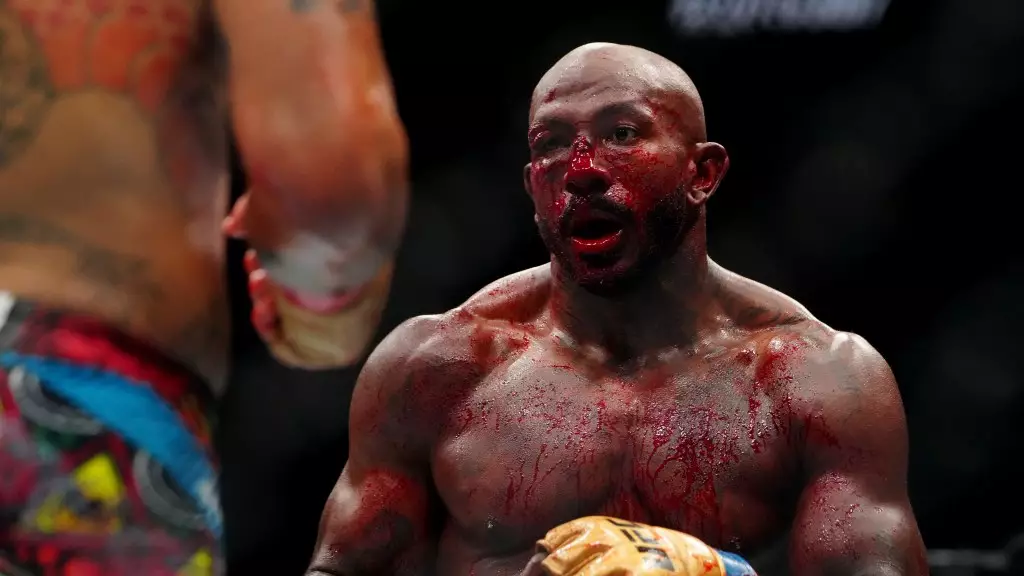In the world of mixed martial arts, few things are as compelling as the story of a fighter who faces overwhelming odds and refuses to back down. Khalil Rountree exemplified this spirit in his recent bout against UFC light heavyweight champion Alex Pereira at UFC 307. Despite suffering a devastating TKO loss in the fourth round, Rountree’s performance was marked by moments of brilliance, demonstrating both his skill and his tenacity in the cage. Yet, beneath the surface of physical prowess, Rountree faced severe repercussions, enduring an injury that left him unable to see clearly—a sobering reminder of the sport’s brutal nature.
Confronting Pereira, Rountree initially showcased an impressive tactical approach. Judges scored him as the leader after the first two rounds, highlighting his striking ability and resilience. However, the fight quickly pivoted. During the confrontation, Rountree sustained significant damage that would eventually alter the course of the match and his health. The fact that he continued to fight—despite realizing that he had gone blind in one eye—speaks volumes to his mental fortitude. He recounted his experience candidly on the “JAXXON Podcast,” revealing that the adrenaline coursing through him masked the pain and confusion he experienced during the fight.
Rountree’s injuries transcended a mere physical toll; they represent a deeper conversation about the repercussions fighters endure. After the bout, it was revealed that he suffered a deviated septum, necessitating a painful medical procedure. The story of his compromised vision during the fight resonates with the broader implications of the sport—the risks that fighters undertake for the thrill of competition and the potential for glory. In recounting how he felt “blind” during crucial moments, Rountree unveils a raw vulnerability that many fans seldom appreciate.
As Rountree embarks on his recovery journey, he is faced with the realities of injury and rehabilitation. The mental and emotional demands are as taxing as the physical, and athletes like Rountree must confront not only their physical scars but also the psychological weight of their experiences in the ring. His willingness to share this part of his journey can provide insights into the less glamorous side of professional sports, where the battle often continues long after the bell has rung. His resolve to “deal with it later” showcases not only his strength but also his commitment to growth and improvement as a fighter.
Through his experiences, Rountree serves as a source of inspiration for aspiring fighters and fans alike. His story emphasizes the importance of resilience, courage, and an indomitable spirit in overcoming adversity. As the fighter prepares for future bouts, his narrative may serve to inspire others who face challenges in and out of the ring. Those who stand firm in the face of adversity are often the ones who emerge stronger, wiser, and more prepared to take on whatever challenges lie ahead. Khalil Rountree’s journey is a powerful reminder of the essence of sportsmanship and the enduring human spirit.

